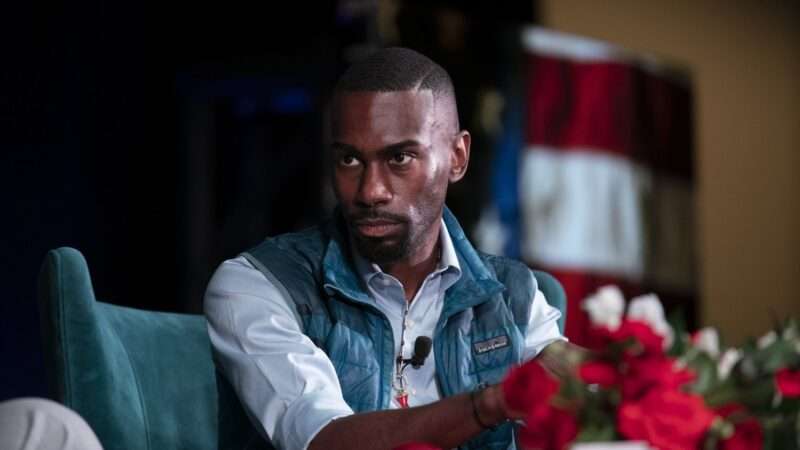
Louisiana's Supreme Court has ruled 6–1 that a Black Lives Matter organizer can be sued by a police officer for injuries the officer suffered in a Baton Rouge protest in 2016.
The organizer, DeRay Mckesson, was not responsible for the injury to the officer (who is not named). The officer claims that as police were confronting protesters blocking a highway, he suffered head injuries when a protester struck him in the face with thrown rocks or concrete. The officer filed a civil suit attempting to hold Mckesson civilly liable for the incident. Even though Mckesson wasn't personally responsible for the injury, the officer argues that Mckesson should have known that the nature of the protest he organized could provoke a possibly violent confrontation between police and protesters.
Mckesson argued that he was engaging in protected First Amendment speech and can't be sued. The case took a very winding route through federal courts (detailed here in a series of tweets by Houston attorney Raffi Melkonian). It made it up to the Supreme Court, which kicked it back down to the state level to see if the Louisiana Supreme Court could resolve the legal claims before it took up the First Amendment concerns.
But Friday's ruling by the Louisiana Supreme Court probably means the Supreme Court will need to take a look at the case. The majority ruled that state law recognizes that citizens have a duty not to "negligently precipitate the crime of a third party" and that Mckesson could be held civilly accountable.
Louisiana's Supreme Court didn't actually rule that Mckesson was responsible, though. We haven't even gotten to that part yet. This ruling was just over whether, under state law, the police officer could pursue a civil claim against Mckesson. Nevertheless, the potential First Amendment implications here are clear: Freedom of speech allows the right to protest, and Mckesson didn't actually tell protesters to chuck rocks at the police. Justice Piper Griffin warned in her sole dissent about the potential chilling effects and some pretty serious unintended consequences:
It is beyond citation that political protest carries a high moral value in our society. It is also true that protests which turn violent may not only result in injuries to police and bystanders but also damage to businesses and property—deterring such outcomes is sound policy. However, the finding of a duty in this case will have a chilling effect on political protests in general as nothing prevents a bad actor from attending an otherwise peaceful protest and committing acts of violence. While in such instances the organizers of a protest may ultimately be cleared of liability by the trier of fact, the costs of defending a lawsuit at the pre-trial phase are significant.
Over at the online criminal justice and election magazine Bolts, Daniel Nichanian takes note of how this is part of a trend of trying to tamp down on protests by holding organizers and participants legally responsible for any troublemakers. He writes:
Police investigated a Utah senator in 2020 for allegedly donating money to a fund that Black Lives Matter protesters used to buy red paint that they spilled in front of the district attorney's office. Also in 2020, police in Portsmouth, Virginia, filed charges against local Black leaders, including a state senator, who were present at a rally where people toppled a Confederate statue. The police also tried to sideline prosecutor Stephanie Morales, who is Black, though she eventually asserted control and dismissed the charges.
It's always worthy of noting how profoundly different courts treat police officers when the shoe is on the other foot—when police conduct results in innocent people being harmed. Thanks to the legal concept of qualified immunity, police officers often evade civil responsibility when they are personally responsible for violating citizens' civil rights, harming them, or destroying their property. Billy Binion noted last year that Shreveport police officers have been protected from a lawsuit by a man they pulled over and beat up over broken brake and license plate lights.
In that case, the police officers were physically responsible for the victim's harm, yet the courts are shielding them from consequences. Contrast that with what's happening to Mckesson, and it's hard not to think that police officers are under a different set of laws than the citizenry they serve to protect.
The post Louisiana Supreme Court Allows Police Officer's Lawsuit Against Black Lives Matter Organizer appeared first on Reason.com.







